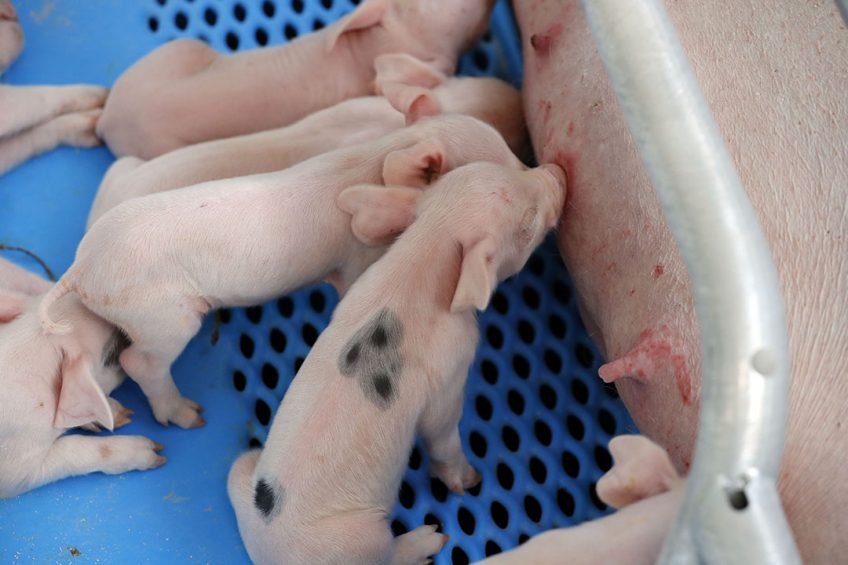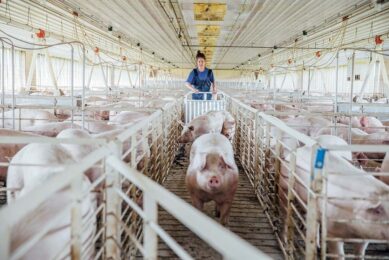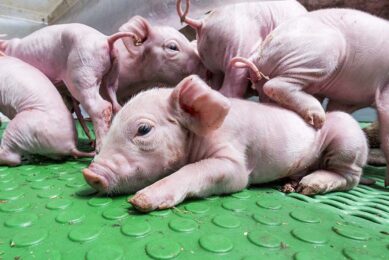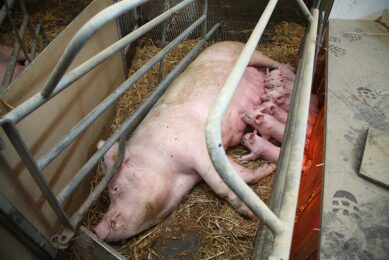Maternal immunity to M. hyo explored in more detail

The exact role of maternal immunity has become a little clearer when sows have been vaccinated against Mycoplasma hyopneumoniae prior to farrowing.
The results of a study were made public by researchers of Ghent University, Belgium at the recently held European Symposium of Porcine Health Management (ESPHM). The study was awarded as the best poster presentation of the event. The ESPHM was held entirely digitally because of Covid-19 and comprised presentations of 2 years, as in 2020 the event had to be postponed.
Maternal immunity through colostrum ingestion
As M. hyo infections often occur in young piglets, and as vaccination against M. hyo is also often done at a young age, it is important to fully understand the role of the immune responses and the immunity that piglets receive via the colostrum.
Under normal conditions, piglets receive different types of antibodies and white blood cells (lymphocytes) through colostrum. When sows are vaccinated against a disease, the specific quality of colostrum against that pathogen increases. The research team wanted to look in more detail to the transfer of M. hyo-specific T-cells, a type of lymphocytes, from sows to piglets. The scientists investigated different types of T-cells and checked whether these – after isolation from the blood and in vitro stimulation with M. hyo – were still capable of producing cytokines, which play an important role in the immune system.
The study confirmed the transfer of antibodies as well as white blood cells (lymphocytes) from sow to the offspring via colostrum, and characterised the different types of transferred lymphocytes.

More from the ESPHM: Vaccines and drugs in perspective
Lead researcher Evelien Biebaut of Ghent University explained, “For the pig industry, this is particularly interesting as it provides a basis for further research. What will have to be investigated is whether the T-cells in piglet blood, originally derived from the sows, will also provide an effective protection against M. hyo infection, whether they might modulate the immune responses in the piglets and whether or not they will interfere with piglet vaccination against M. hyo.”
Effect of vaccination on sows
In the trial, the Ghent University team followed 2 groups of neonatal piglets, and zoomed in on the cytokine production by certain types of T-cells in blood of:
- 23 2-day-old piglets from M. hyo vaccinated sows in an endemically infected farm; and
- 24 2-day old piglets from non-vaccinated sows on a M. hyo negative farm.
On the M. hyo infected farm their mothers had been vaccinated with MycoFlex, by Boehringer Ingelheim, at 3 and 6 weeks prior to farrowing. After vaccination, at the moment of farrowing, the percentage of a certain type of T-cells (CD8+CD4+) was increased. M. hyo specific antibodies and lymphocytes were transferred from the vaccinated sows to their piglets via colostrum. On the M. hyo negative farm antibody concentrations were very low and there was significantly less transfer of lymphocytes.
The team wrote: “Piglets from vaccinated sows had more CD8+CD4+ T-cells, which correlate with a memory function, in their blood, than piglets from the M. hyo negative farm.”
The research was carried out by E. Biebaut, L. Beuckelaere, F. Boyen, F. Haesebrouck, B. Devriendt and D. Maes, attached to Ghent University, Belgium.
Join 18,000+ subscribers
Subscribe to our newsletter to stay updated about all the need-to-know content in the pigsector, three times a week. Beheer
Beheer










 WP Admin
WP Admin  Bewerk bericht
Bewerk bericht